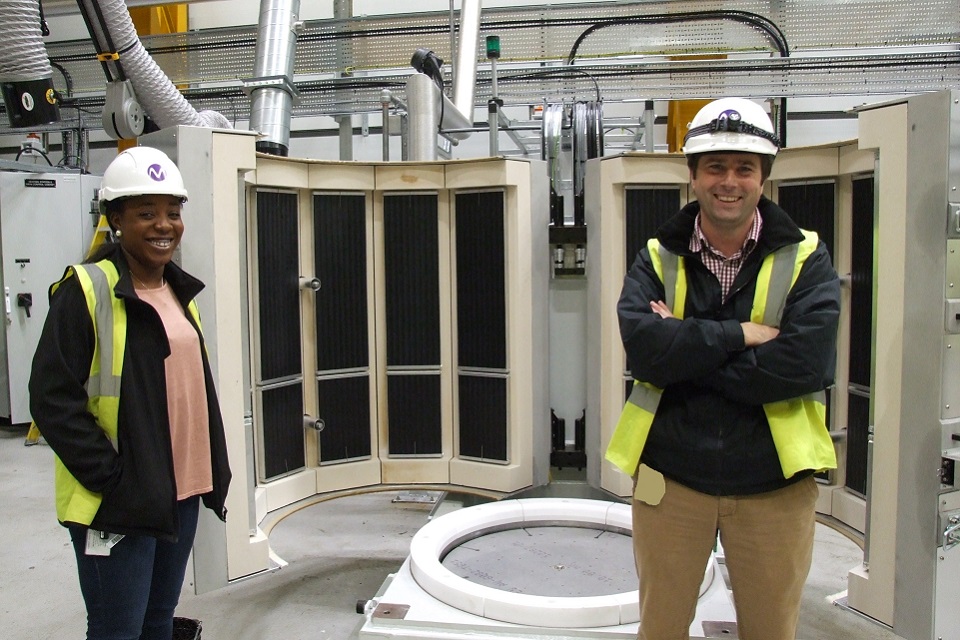As much as 99 per cent of moisture is removed from intermediate level waste (ILW) through the Advanced Vacuum Drying System (AVDS), reducing volume and cutting the cost of storing the material.
AVDS was first used at the Berkeley nuclear site, Gloucestershire, in 2013, to tackle radioactive sludge, resin and other waste generated while the site was producing electricity and in the early stages of decommissioning.
AVDS proved such a success at Berkeley that it was dispatched to Bradwell, in Essex, where it was put to work helping to manage the site’s radioactive waste inventory.
To date, the Bradwell plant has processed 85 different packages of waste.
The experience gained from using AVDS at other sites means that it could be built, installed and commissioned at Dungeness A in just 10 months – 30 per cent quicker than at Bradwell.
AVDS uses a heating, vacuuming and refrigeration process and can be applied to waste that has already been placed in containers for storage. Drier waste is far more suitable for long-term storage because it presents fewer corrosion and gas generation issues for the container.
Developed as a joint project by Magnox Ltd and MechaTech Systems, an SME based near Bristol, the process was highly commended by the NDA’s supply chain awards in 2014 and also won a Magnox innovation award.
Compared to the conventional approach of encapsulating ILW in cement, AVDS also reduces the time it takes to treat ILW before it can be stored.

Steve Batchelor, Programme Delivery Manager at Dungeness A site, said:
AVDS offers us a safe, efficient and low-cost solution to treating Dungeness A’s ILW.
The whole process of building, installing and commissioning the AVDS has been recorded and made available as a time-lapse sequence.
Time lapse video of Advanced Vacuum Drying System (AVDS) Dungeness A
Follow this news feed: DEFRA





